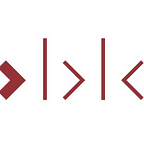“Why is Facebook drawing the line where it’s drawing the line?”: Discussing Facebook’s Oversight Board
Berkman Klein event explores the scope, limits of Facebook’s “Supreme Court”
In late 2018, Mark Zuckerberg announced that Facebook would create an independent Oversight Board, which many dubbed the company’s “Supreme Court.” Over the past year or so, Facebook has made strides to operationalize the board, and implement processes and guidelines, but open questions persist: what if there are disagreements between the board and Facebook? Why will the board address content takedowns and not content that is left up? Should there be additional regulation of platforms like Facebook?
Zoe Darmé, manager of Facebook’s Global Affairs and Governance team, shared an insider’s perspective on the board and helped to clarify some of these lingering questions at a recent event hosted by the Berkman Klein Center for Internet & Society. Darmé was joined by Evelyn Douek, an S.J.D candidate at Harvard Law School, and Jonathan Zittrain, the George Bemis Professor of International Law at Harvard Law School and co-director of the Berkman Klein Center. The conversation was convened and moderated by Julie Owono, a fellow at Berkman Klein.
Darmé opened the event by giving an overview of Facebook’s progress since announcing the board, including the anticipated global makeup of the board’s members, its governance structure, how cases are brought to the board, and how information is provided to the board. Darmé emphasized that the board is focused on challenging issues with content. “People hear ‘Oversight Board,’ and they want it to have oversight over a business model, or AI, or data privacy, or all the things,” she said. “We have workstreams that handle the governance of all of those areas. This is really designed for content.”
At the end of the case review process, the board will publicly provide a binding decision on the content in question, which Facebook is required to comply with, as well as non-binding policy suggestions. Facebook will “analyze the technical feasibility of applying that decision to similar content across the platform,” review the policy recommendations, and also release a public response, Darmé explained.
“Would it be a token of success or failure if Facebook’s public statement in the wake of a decision was ‘this is kind of an outrage, and we disagree with it?’” Zittrain asked. “Does that mean the system’s working or the system isn’t working?”
Since Facebook is already bound by the board’s decisions, “In one sense, it doesn’t matter what we think,” Darmé said. “I think the more interesting thing will be how does Facebook respond to the policy advice? That part’s not binding, and so it’s soft power by the board.”
But the purpose of the board isn’t to provide binding policies for Facebook, Douek said. “What I think the board is going to help do is… be more transparent,” she explained. “I think we need much more open conversation about, why do we have these rules? What is the purpose of the rules? Why is Facebook drawing the line where it’s drawing the line?”
Douek also expressed concern that the Oversight Board only has “jurisdiction” over cases about take down requests, rather than instances when content should stay up.
“The only reason that we can’t do leave up decisions from the very beginning is the system for user referrals is built on an existing system of appeals, and we have to build out the appeal system to allow for appeals of leave ups to go before the board,” Darmé explained. In the meantime, the board may see “leave up” cases if Facebook refers the case to them.
In addition to Facebook referrals, users can use a tool on Facebook to explain their basis for the appeal, why Facebook’s response was inaccurate, and why they think it’s important for the entire user community on Facebook, Darmé said. Both Facebook and the user have the ability to provide information for the board to review, and the board can also request additional information about each case, including amicus briefs for additional context.
Darmé explained that the projected timeline for the board to review a case is 90 days, with a 30-day timeline for “expedited” cases that have more urgency while recognizing that the review system is set to a different pace than the spread of content on the platform.
“It’s a lengthy process, but how do you balance making sure that these cases get reviewed fairly, make sure that there’s something equivalent to due process and all of this and fairness and procedural transparency, but also do it quickly enough to represent the fact that content online just moves at a different speed than say, a case through a real court?” Darmé asked.
In a similar vein, Owono asked the panelists about their thoughts on additional regulation of Facebook, beyond the Oversight Board model. Zittrain pointed out the challenges when it comes to government intervention and content moderation. “Those are, likely in America, to be decisions which the government would not be permitted under current understandings of the First Amendment to actually set the boundary.”
Douek agreed. “The fundamental Gordian knot of content moderation, and what I study, is that this is a unique species, a unique area where we don’t want governments coming in and saying, ‘this is the speech that’s allowed’ and ‘this is the speech that’s not allowed,’ because they have a self-interested biased viewpoint of what they want, what speech that they want, which is the political speech that’s favorable to them. Or at least that’s the understanding behind centuries of free speech jurisprudence,” she explained. “So that’s why we do need these new institutional innovations. But having said that, that’s why I would like to see more procedural regulations around these self-regulatory models.”
